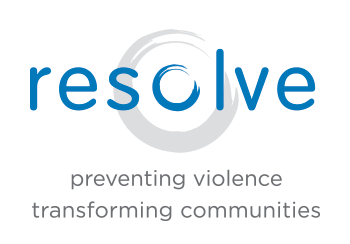Here at Resolve, we spend a lot of time talking about boundaries – how to set them, how to respect them, and why they’re important. We know boundaries are the key to feeling safe and happy in all realms of life. Unfortunately, many of us are socialized to believe that setting boundaries is rude; that saying no or expressing discomfort is impolite.
We know the opposite is true: Boundaries are an expression of love and care. And right now, during an unprecedented health crisis, boundaries are more important than ever.
We can think about this moment as a worldwide lesson in the importance of boundaries. Right now, the best way to demonstrate how much we care about others is through physical boundaries: social distancing and keeping space between you and others when you leave your home. We can support our loved ones by respecting their boundaries. If a family member doesn’t feel comfortable seeing you in person; if your roommate wants you to wash your hands after you get back from the grocery store; if your friend you run into at the dog park doesn’t want to hug you. We need to honor these requests. We shouldn’t push back. We shouldn’t minimize their concerns.
There are plenty of other boundaries that people might be asserting right now. Friends and partners might want to have a conversation about something other than COVID-19. Your coworker might not be available during certain hours of the workday because they’re with their kids. Partners or housemates might need time alone. Again: We can show these people we care by listening to them, and not making them feel guilty for communicating their needs.
If you’re setting any of these boundaries or any others, know that you are doing the right thing! It can feel hard to communicate what you need, and of course with so many of us feeling stressed and concerned right now, it’s important to make sure we’re communicating clearly and compassionately. When we do, we are giving others the opportunity to care about us and help us through this difficult time. And as with all boundaries, you may need to say it more than once. It might be more of a conversation than one “I feel” statement. But it’s worth the effort.
Maybe you’re worried that you’re overreacting. Maybe someone has already made you feel guilty or feel like you’re being irrational. But we should not feel guilty for prioritizing our health and well-being – or that of those around us. And that’s especially true during times of crisis. It’s all too easy to talk ourselves out of setting a boundary because we’re worried we’re overreacting, or we don’t think our feelings are valid. Many of us have internalized the idea that we need to put ourselves last, after our jobs and our families. We owe it to ourselves, and to our community, to identify what we need and what makes us feel safe, and then communicate that, unapologetically.
Our boundaries can, quite literally, keep people and communities healthy – but then again, they always do.
